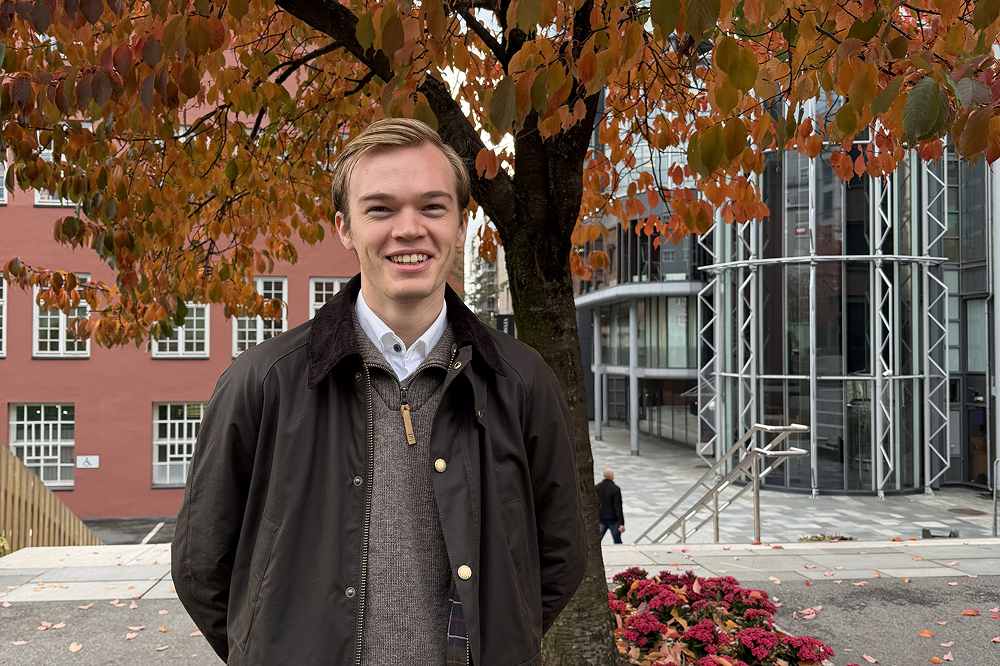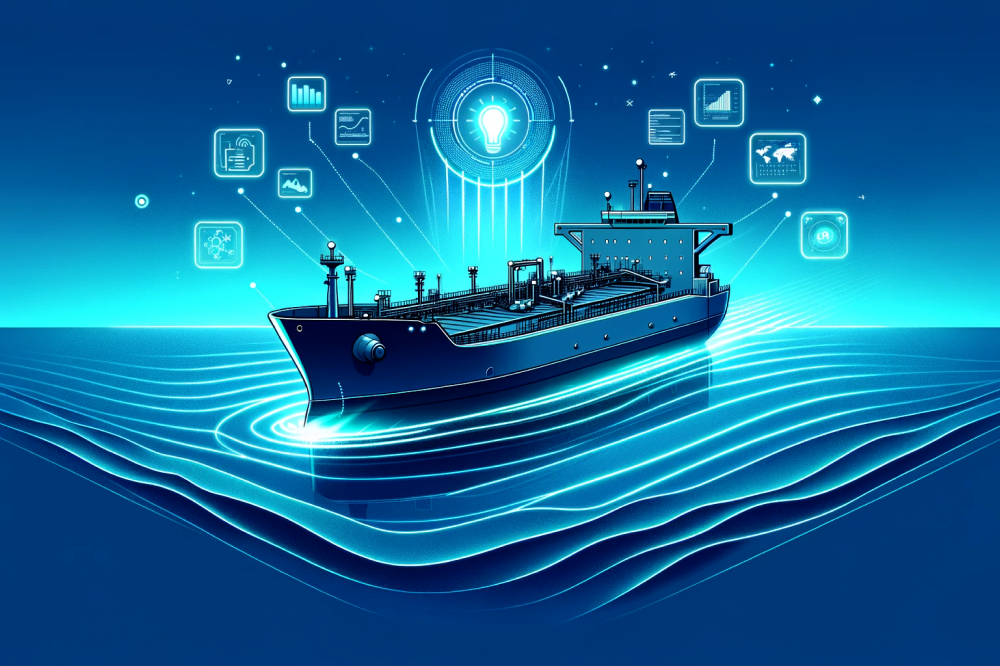
The 2nd Breakfast Club Meeting; War in Europe, China on the rise. Where are we heading?
Today, we organized the 2nd Breakfast Club Meeting at The Fridtjof Pub.
As mentioned in the first post, the goal of these Breakfast Club meetings is to bring knowledgeable people together, share data and insight, discuss, and show the opportunities that data and industrial knowledge might create.
In the last Breakfast Club Meeting Ulf Sverdrup talked about the decline in the democracy index. Today it is at a level similar to 1990. "Electoral autocracy" has become the most common type of regime.

The new world order after the Ukraine war
Presented by Mr. Asle Toje is the Deputy Leader of theNorwegian Nobel Committee.
President Putin has since 2008 reiterated Russia's willingness to go to war to keep Ukraine in the Russia's sphere of influence. Now the war is here. The question then becomes; how far is Russia willing to go to achieve its illegitimate claims? Russia is an unstable superpower with a risky and unpredictable behavior; an owner of the world's largest nuclear arsenal: a dangerous country that should be handled with great caution.
The world will never be the same. The future is influenced by extraordinary happenings that we did not expect to happen. More than two years with a global pandemic, in isolation, vaccines and politics, trust and distrust, conspiracy theory, and then straight into a war in Europe. Russia might have thought Europe was weak. However,Europe has become stronger and more unified than ever after the Russian innovation.
Europe and US quite quickly impose economic sanctions. How will the European and US economic sanctions on Russian challenge a globalized world mostly defined by Europe and US, with the rising super-powerChina? International transfer of money has been done through the international payment system SWIFT. Many experts believe the move to ban banks from Swift is likely to accelerate the expansion of Beijing’s cross-border payment and settlement system (CIPS), and we discussed if there will be a new world currency competing with EURO and USD. Will China demand European and US businesses to start using their CIPS and Yuan to do business with Chinese companies?

China's ambition to become a world leader - what will that world look like?
Mr. Henning Kristoffersen, a special advisor from the Governance Group, ChineseGovernmental, and Public Affairs.
Henning explained how China works and what is important for China, the individuals, the businesses, and their government. Basically, China will do what China means is the best for China and its citizens. China has 20 % of the world's population, but they don't have 20% of the energy sources, 20 % of natural minerals, oil, freshwater, etc.
China and Norway might be the two countries that have benefitted most from globalization. China has experienced tremendous growth during the last 30 years and has lifted millions out of poverty. They have learned and studied and then improved the production lines for all types of goods. They organize their shipments and logistics line efficiently, and export and import (trade) are essential for China, and there is no way this will end.
TheEuropean and US investments in China in 2020 and 2021 were bigger than ever, so were the Chinese investments in Europe. So maybe the picture drawn by the media is not the whole truth. Henning doesn't believe China will invade Taiwan. They don't need to do that – at least not for now.
China needs the world, and the world needs China, and China doesn't want to be involved in a Russian – European/US war.

Technology will continue to change the world
Access to AIS data, which started in the 1990s as a high intensity, short-range identification (VHFen) for collision awareness and SAR. The technology that was not anticipated to be detectable from space, now has become a mandatory and available public GPS for "things” (read vessels).
The AIS in combination with satellites with image processing, heath detections, and other technologies are gradually changing the maritime industry.
There is established a digital infrastructure, previously paid and operated by governments, now offered by private. Low orbit satellites and private broadband satellites are offered by businesspeople such as Elon Musk, Bezos, Richards Branson, etc.,while Google pays fast internet to Africa via sub-Sea cables. We have many networks and communities operating private terrestrial senders, and we see improved / new AIS technology offered by private businesses: Dynamic AIS / Mesh network / VMS
Sensors and edge computing onboard make local storage and data processing very affordable.Cloud solutions offer affordable data storage for processing big data and create a renaissance for old technologies such as algorithms, machine learning, and deep learning / AI.
The affordable real-time connectivity, edge computing, and cloud solutions make a real-time exchange of data streams between the vessels and the shore side technically and economically possible.
There are more than 8 mill active mobile phones in the world. For real-time connectivity, tracking, photos, AR – VR, and MR tool kits. Today, mobile phones, the small, powerful pocket machines with more technical capacities than the computer that sent the first rocket to the moon, are owned by everyone. Pollution and unethical behaviour are not building brands. The mobile phones with cameras, GPS, and access to social media make it easy to share and more challenging to hide.
The first step towards change is awareness. The second step is acceptance. How data and knowledge can make a difference.
Considering ordering an Aframax tanker vessel?
Did you know there are 240 Aframaxes less than 5 years trading today? Do you want to find the newbuildings delivered during the last 6 months?
Do you want to know were these vessels have been trading during the last 6 months ? or last 12 months ?
Did you know the average speed of these Aframaxes were 12,5 knots during the last 6 months and do you want to find the average speed during the last month ?
Want to monitor a war area?
Did you know that close to 70 flag states are trading in the Black Sea region everyday, with all types of commodities? The vessels are trading from the Black Sea to more than 62 different countries and 230 different ports!
Did you know that 87 vessels are laying outside the Sea of Arzov, 98 vessels outside Novorossiysk and 198 vessels outside Bospurous just now. Do you want to find how many vessels have arrived there during the last 24 hours and which flag they are flying?
Do you want to find of any of your competitors traded there and if war insurance is applicable ?
Carbon emission?
Did you know that the carbon emissions for a VLCC vessel, open in Rotterdam, loading at Mongstad and discharging in the USG is 7.760 mt ? And that the carbon emissions for this vessel most likely, so far this year, is close to 80 000 mt ? While carbon emissions for this vessel B is only 60 000, which vessel do you want to fix for a TC ? And what do you want to pay ?

In 2010: "Is the opening of the Northern Sea Route for international maritime traffic sustainable"? Today the passage is open for international trade.
A vessel saves 15 - 20 days vs going through Suez.
Savings: 750 – 1 000 mt fuel at a cost USD/mt 700
Savings: 1 200 – 2 700 mt carbon emissions (similar to 1 000 – 2 400 cars)
Do you want to monitor a list of vessel? Find where they are trading now and where they have been trading in the past, add comments and contact details?
Want to minimize your bunker costs, minimize carbon emissions and maximize your earnings?
Want to quickly calculate and compare TCE on your vessels or market vessels for different cargoes?
Want to quickly understand vessels available for your cargoes within specific dates?
Want to re-schedule in real-time?
Want to understand your risk profile in real-time?
Awareness and acceptance = checked. Who wants to change now?
Knowledge and data, and people to discuss with, will enlighten people. Enlightened people will make the right discussions and find the right solutions to sort out problems and challenges, whether they are planned or unforeseen.

The moderator was Mr. Tom O. Kleppestø, Managing Director, Ocean Industry Forum Oslofjord, Shipping and Offshore Network, and Oslo Ship Owner's Association. Besides being a well-known shipping event facilitator, he is also a knowledgeable and excellent storyteller.
At the end we summed up and discussed, and the event was very interesting discussions where we talked about the changes in geopolitics, how the new order might look like. We discussed topics such as globalisation versus regionalisation. Trade, energy and how natural resources is not equally distributed and what that mean. We touched upon how technology will change the world, while Fridtjof Pub served freshly squeezed orange juice and coffee with warm waffles and homemade bread.
The Fridtjof Pub was crowded, and the audience's feedback was good; we are looking forward to organizing the next breakfast meeting on the 12th of May.
Thanks for joining.
We are looking forward seeing you on the 12th of May.















